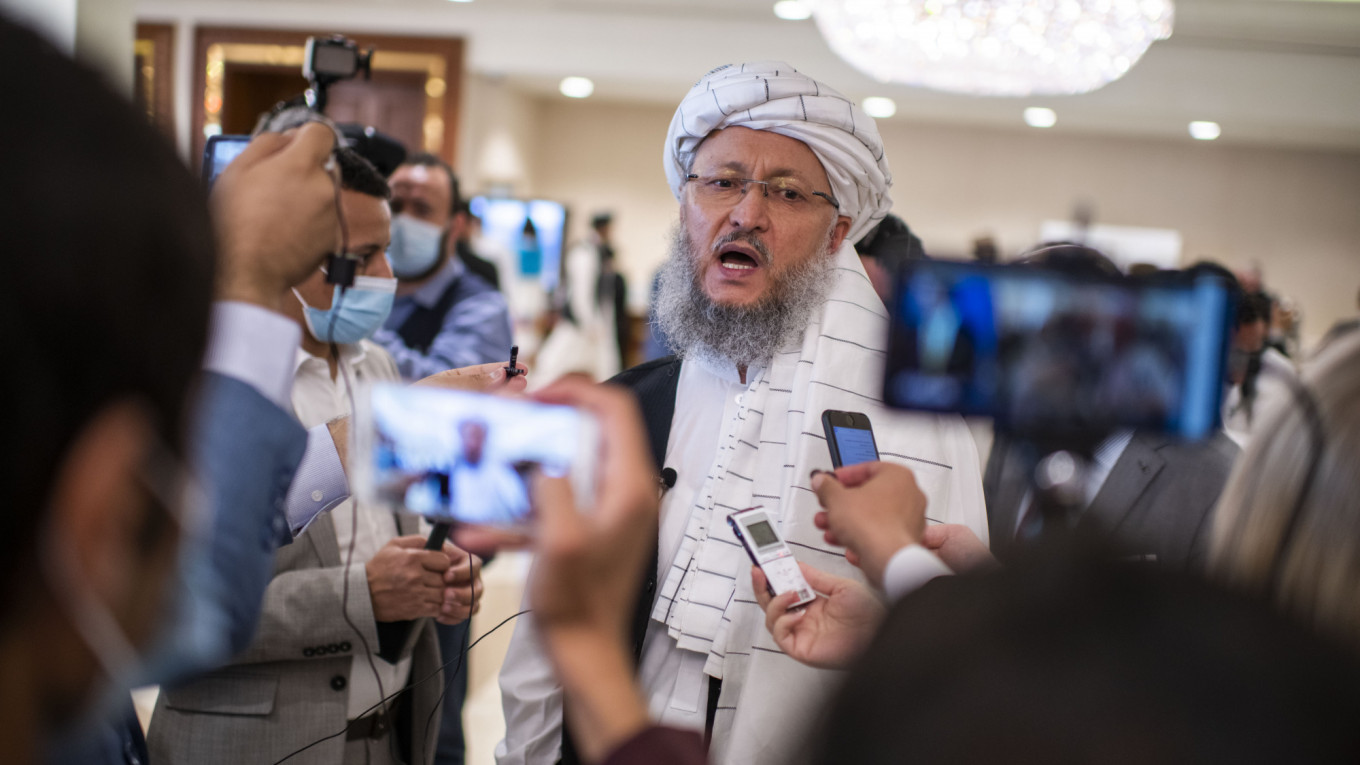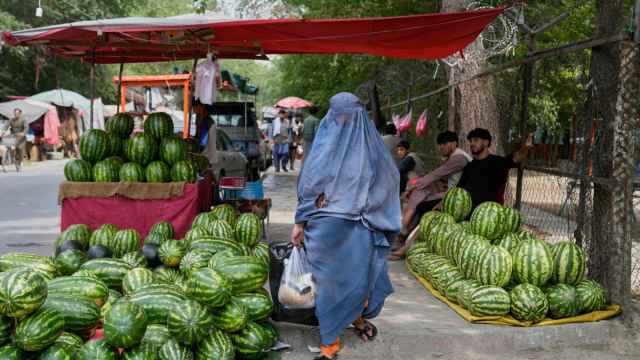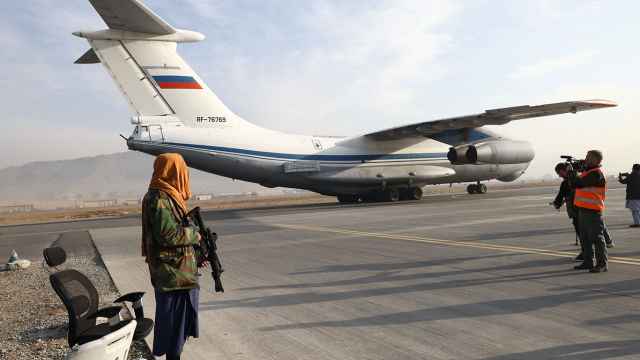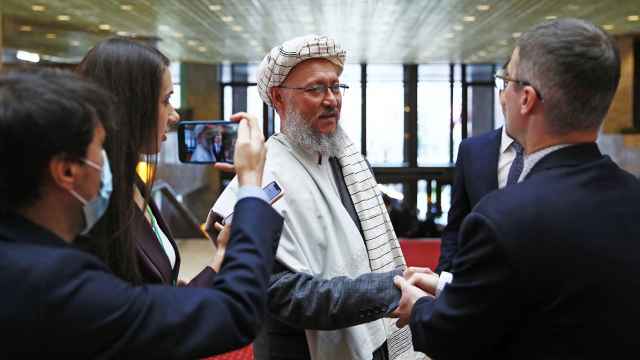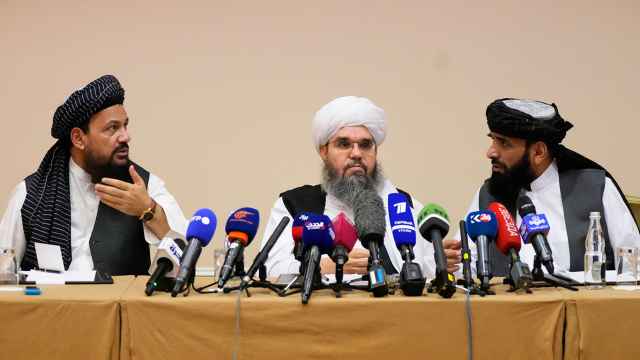Russia hosts the Taliban for talks in Moscow on Wednesday, seeking to assert its influence on Central Asia and push for action against Islamic State fighters which it says have massed in perennially volatile Afghanistan.
The talks, which draw officials from 10 countries including China and Pakistan, are one of the Taliban's most significant international meetings since seizing power in mid-August.
They come after Russian President Vladimir Putin warned last week that IS fighters were gathering in Afghanistan to spread discord in former Soviet republics flanking Russia.
Russia's veteran foreign minister, Sergei Lavrov, is set to address the gathering.
The Taliban delegation is headed by Deputy Prime Minister Abdul Salam Hanafi, a senior figure in the new Afghan leadership who led talks with the European Union and the United States last week.
Those followed talks in Ankara between the Taliban and Turkish officials.
Brussels has pledged one billion euros ($1.2 billion) to avert a humanitarian crisis after the hardline group's takeover.
Russia's Foreign Ministry said on Tuesday that one of the aims of the Moscow meeting was to consolidate the “efforts of the international community to prevent a humanitarian crisis.”
Moscow also said the formation of an “inclusive government” would be on the agenda, and that parties to the talks were expected to release a joint statement afterwards.
Moscow has reached out to the Taliban and hosted its representatives in Moscow several times in recent years, even though the Taliban is a designated terrorist organization in Russia.
IS, drug trafficking concerns
Senior Russian officials, including Putin, have been voicing a slew of other security-related concerns since the Taliban wrested control of Afghanistan and foreign troops pulled out after nearly 20 years.
The Russian president cautioned last week that some 2,000 fighters loyal to the Islamic State had converged in northern Afghanistan, adding that their leaders planned to send them into neighboring Central Asian countries disguised as refugees.
After the Taliban's takeover, Russia ran military drills alongside ex-Soviet countries neighboring Afghanistan.
Lavrov also warned that drug trafficking from Afghanistan had reached “unprecedented” levels, a concern since echoed by the Kremlin during meetings with other Central Asia countries and China.
Despite reaching out to the Taliban, Russian officials, including Putin, have in recent weeks made clear Moscow is not moving towards formal recognition of the Islamist regime.
“The official recognition is not being discussed and that has been stated publicly,” Lavrov said, but noted that Russia, like other countries in the region, maintains contact with the group.
In the 1980s, Moscow fought a disastrous decade-long war in Afghanistan that killed up to two million Afghans, forced seven million more from their homes and led to the deaths of more than 14,000 Soviet troops.
A Message from The Moscow Times:
Dear readers,
We are facing unprecedented challenges. Russia's Prosecutor General's Office has designated The Moscow Times as an "undesirable" organization, criminalizing our work and putting our staff at risk of prosecution. This follows our earlier unjust labeling as a "foreign agent."
These actions are direct attempts to silence independent journalism in Russia. The authorities claim our work "discredits the decisions of the Russian leadership." We see things differently: we strive to provide accurate, unbiased reporting on Russia.
We, the journalists of The Moscow Times, refuse to be silenced. But to continue our work, we need your help.
Your support, no matter how small, makes a world of difference. If you can, please support us monthly starting from just $2. It's quick to set up, and every contribution makes a significant impact.
By supporting The Moscow Times, you're defending open, independent journalism in the face of repression. Thank you for standing with us.
Remind me later.


